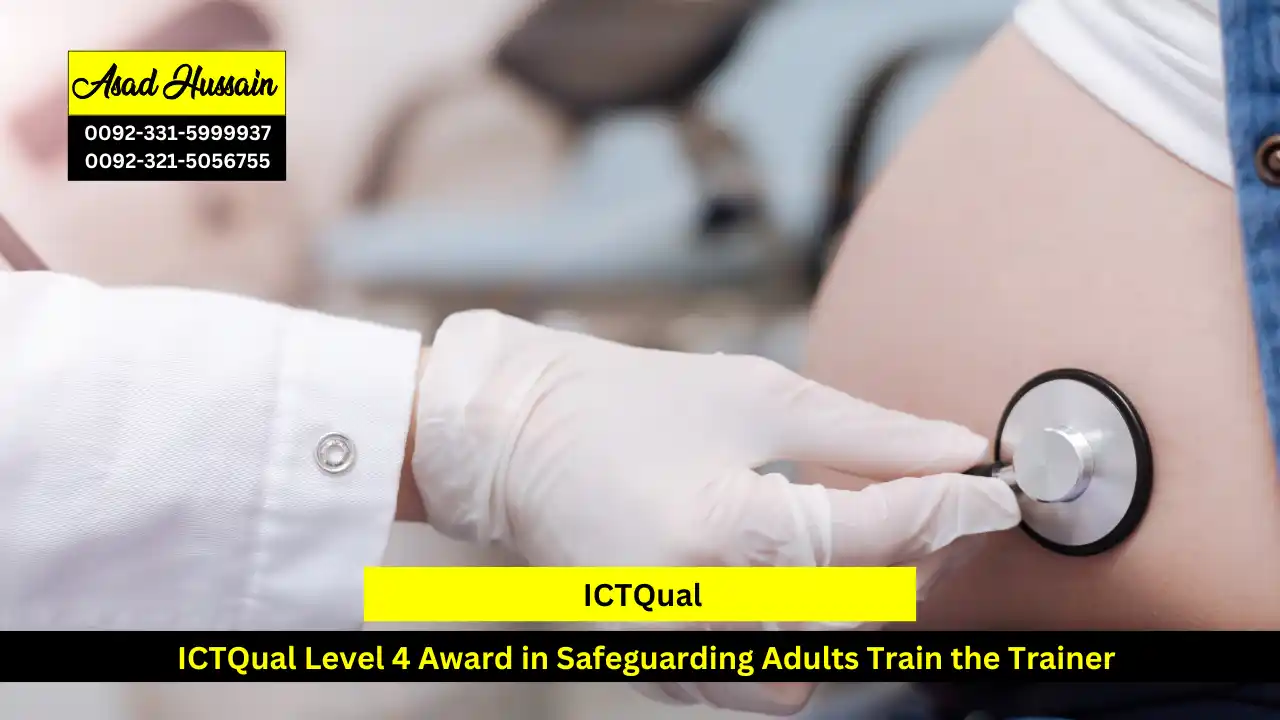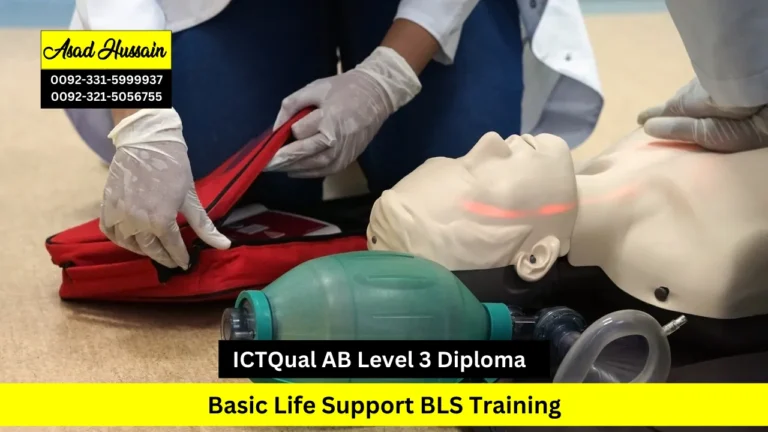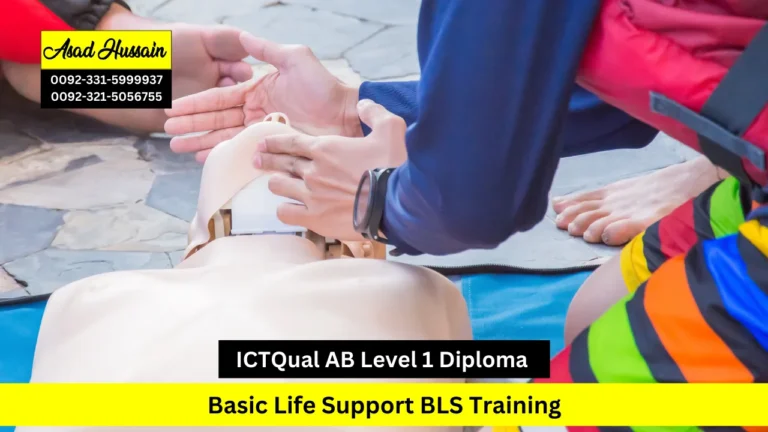In today’s fast-paced and ever-evolving world, the importance of safeguarding vulnerable adults cannot be overstated. Whether you work in healthcare, social services, education, or any other sector that interacts with at-risk populations, ensuring that you are well-equipped to protect and advocate for these individuals is paramount. This is where the ICTQual Level 4 Award in Safeguarding Adults Train the Trainer comes into play. This certification not only enhances your knowledge and skills in safeguarding but also empowers you to train others, amplifying your impact.
The ICTQual Level 4 Award in Safeguarding Adults Train the Trainer is a comprehensive program designed to provide participants with advanced knowledge and practical skills in safeguarding adults. It goes beyond the basics, focusing on developing your ability to train others effectively. This dual focus ensures that you not only understand the principles of safeguarding but can also convey this crucial information to colleagues, thereby fostering a safer environment within your organization.
The ICTQual Level 4 Award in Safeguarding Adults Train the Trainer is more than just a certification; it’s an investment in your professional development and a step towards making a significant difference in the lives of vulnerable adults. By gaining this qualification, you position yourself as a knowledgeable and capable trainer, ready to spread essential safeguarding practices throughout your organization and beyond.
In an era where safeguarding is more important than ever, this award ensures you are at the forefront of protecting those who need it most. So, take the plunge, enhance your skills, and become a beacon of safety and support in your professional community.
Program Highlights
Mandatory Units
- Introduction to Adult Safeguarding
- Understanding Abuse and Neglect
- Safeguarding Procedures and Protocols
- Training Delivery Skills
- Assessment and Evaluation
- Ethical and Professional Considerations
- Practical Application and Case Studies
- Candidates should possess a minimum of a Level 3 qualification in a relevant field, such as health and social care, education, or a related discipline. This ensures a foundational understanding of the concepts and principles related to safeguarding adults.
- Prior experience working in roles that involve safeguarding adults or related fields is highly desirable. Applicants should have practical experience dealing with vulnerable adults and be familiar with safeguarding protocols and procedures.
- While not mandatory, previous experience in delivering training sessions or teaching adults is advantageous. This could include roles such as a trainer, educator, mentor, or facilitator.
- Strong verbal and written communication skills are essential for effectively delivering training sessions and engaging with learners. Applicants should be able to articulate complex concepts clearly and facilitate meaningful discussions.
- Proficiency in the language of instruction (usually English) is necessary to fully engage with course materials and participate in discussions.
Understanding Safeguarding Adults
- Explain the principles and importance of safeguarding adults within various organizational contexts.
- Identify key legislation, policies, and procedures related to safeguarding adults.
- Describe the roles and responsibilities of individuals and organizations in safeguarding adults.
- Analyze case studies to understand the practical application of safeguarding principles.
Types of Abuse and Recognizing Signs
- Define different types of abuse and neglect affecting vulnerable adults.
- Recognize the signs and indicators of various forms of abuse and neglect.
- Assess real-life scenarios to identify potential abuse situations.
- Evaluate the impact of abuse on victims and their support networks.
Risk Assessment and Management
- Conduct thorough risk assessments to identify potential safeguarding concerns.
- Develop risk management plans to address identified safeguarding risks.
- Implement strategies to mitigate risks and protect vulnerable adults.
- Monitor and review risk management plans to ensure ongoing safety and effectiveness.
Reporting and Recording Safeguarding Concerns
- Understand the importance of accurate and timely reporting and recording of safeguarding concerns.
- Apply appropriate procedures for reporting safeguarding issues within an organization.
- Maintain detailed and confidential records of safeguarding incidents.
- Evaluate the effectiveness of reporting and recording processes and suggest improvements.
Designing and Delivering Safeguarding Training
Learning Outcomes:
- Design engaging and informative safeguarding training sessions tailored to different audiences.
- Develop training materials that effectively communicate safeguarding principles and procedures.
- Utilize various training delivery methods to enhance participant engagement and understanding.
- Assess the effectiveness of training sessions through feedback and evaluation techniques.
Assessing and Evaluating Training Impact
- Develop assessment tools to measure participants’ understanding and application of safeguarding knowledge.
- Conduct evaluations to determine the impact of safeguarding training on practice.
- Analyze evaluation data to identify areas for improvement in training delivery.
- Implement changes to enhance the quality and effectiveness of future safeguarding training sessions.
The ICTQual Level 4 Award in Safeguarding Adults Train the Trainer is designed for professionals who play a pivotal role in protecting and advocating for vulnerable adults within their organizations. This course is ideal for managers, supervisors, and trainers in healthcare, social services, education, and community organizations who are responsible for overseeing safeguarding practices. It also caters to those aspiring to take on leadership roles in safeguarding, ensuring they are well-equipped to disseminate crucial safeguarding knowledge and skills among their teams. Additionally, individuals committed to professional development and enhancing their expertise in safeguarding will find this course invaluable. By empowering participants with the ability to train others, this course amplifies their impact, fostering a culture of safety and awareness across various sectors.







